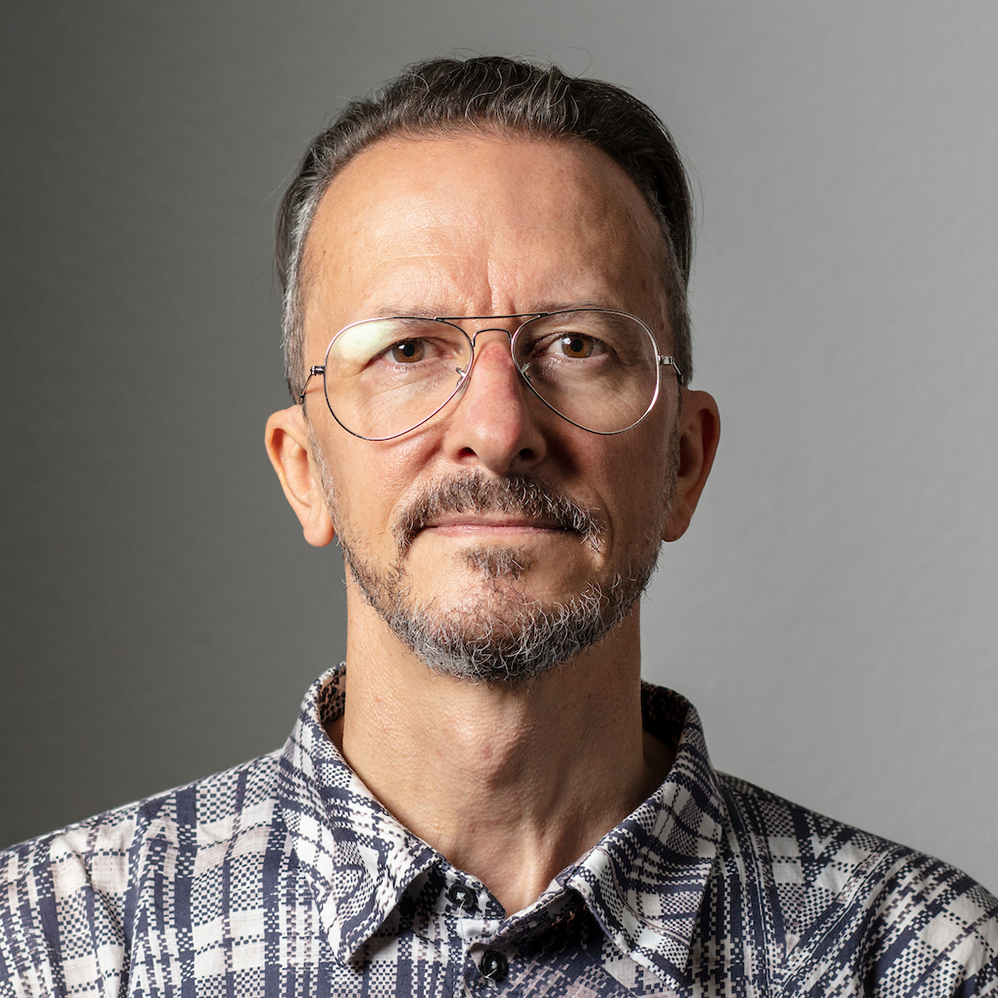
When the world talks about Switzerland
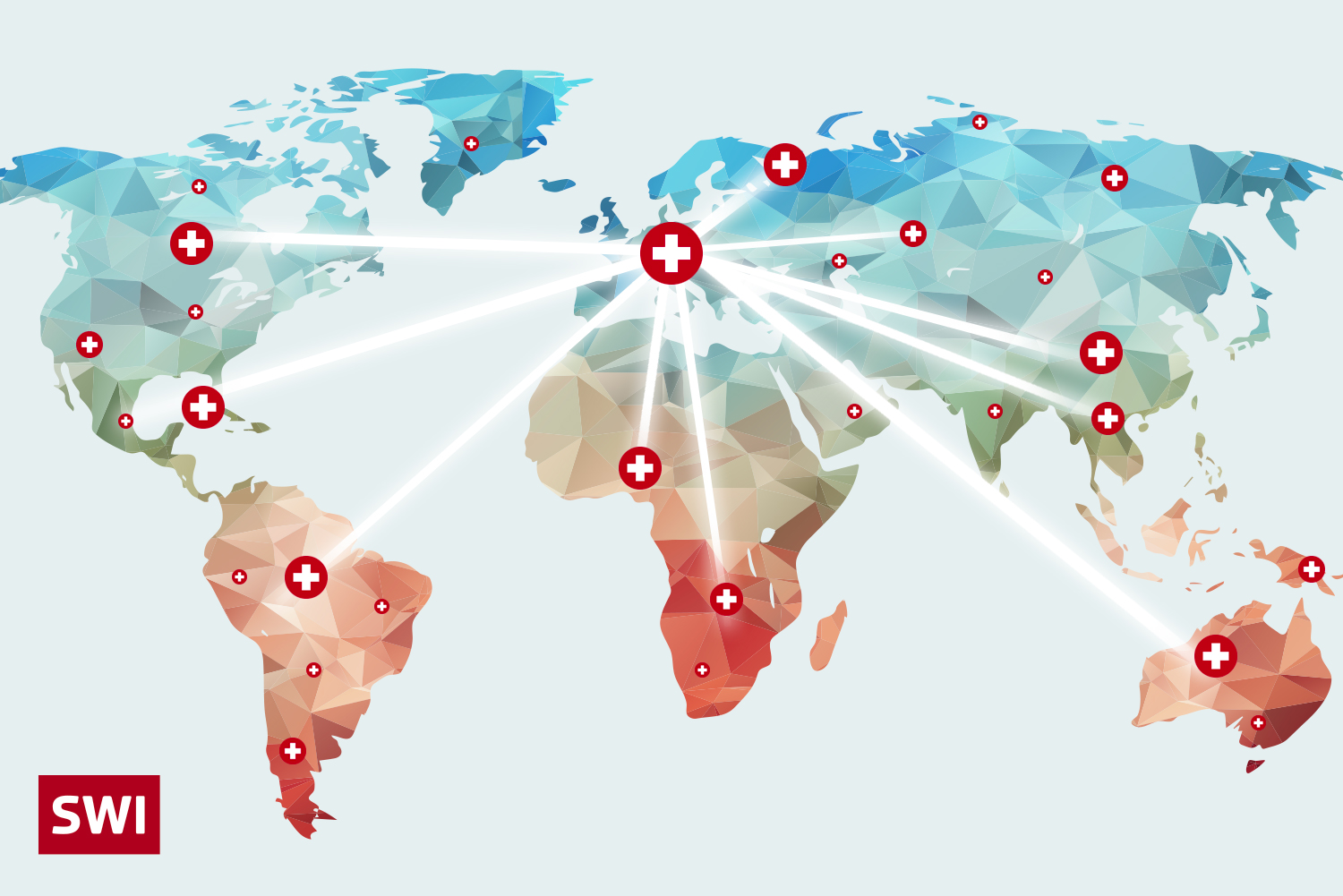
Swiss attitudes and positions on global issues sometimes come as a surprise to the international community. However, in some remote corners of the world, Switzerland is responsible for some small, but no less astonishing, stories. SWI swissinfo.ch takes a closer look.
Given the fact that Switzerland barely covers 0.008% of the Earth’s surface, it is astonishing that it regularly makes international headlines. This is not only because approximately 800,000 Swiss nationals live abroad; it is also due to Switzerland’s close economic ties with many countries around the world and the many international organisations that are based in the Alpine country.
In recent weeks, Switzerland’s international reputation seems to have suffered some damage. The collapse of Credit Suisse and the fact that Switzerland is willing to deliver weapons to warring parties in the Middle East but refuses to do so in the war in Ukraine have been at the centre of criticism. As if this weren’t enough, it will soon have to justify why it is still worth travelling to Switzerland in the winter despite the lack of snow.
Tourism is not the only worry when it comes to snowless Swiss winters. Switzerland’s high share of renewable energies, which has been met with envy by the rest of the world, are at risk. Without the annual snowmelt, many reservoirs are in danger of drying out.
All of this aside, could Switzerland at least score points through its seat on the United Nations Security Council? It is too early to tell, and the first impressions are ambivalent, which could be due in part to the structure of the most important UN body.
In the coming months, two people with Swiss roots are likely to cause furor in two of Switzerland’s neighbouring countries: the recently elected leader of Italy’s left-wing opposition party, Elly Schlein, and the sometimes “difficult” theatre director Milo Rau, who has been selected as the new artistic director of the Wiener Festwochen, an annual cultural festival in Vienna.
Selected spotlights: Switzerland in the world
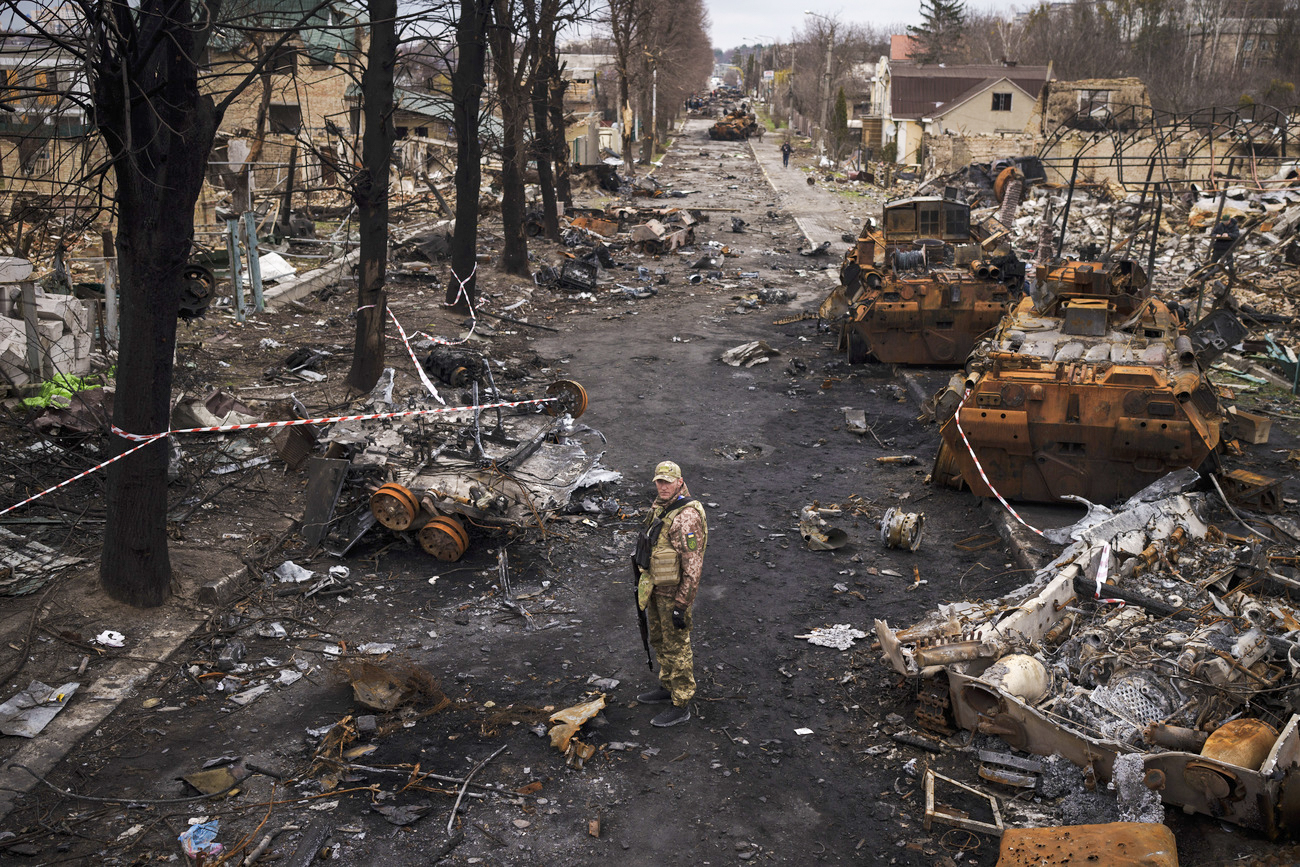
Russia: war crimes tribunal and federalism
Shortly after SWI swissinfo.ch published a series of interviews on war crimes in Ukraine, the outlet became inaccessible in Russia. The experts we spoke to were discussing, among other things, the role Switzerland could play in helping to bring perpetrators of war crimes in Ukraine to justice, especially in light of the principle of universal jurisdiction. Back in 2021, Switzerland had applied this principle when it prosecuted and sentenced the former Liberian rebel leader Alieu Kosiah for war crimes.
The Swiss tabloid Blick recently published an in-depth interview with a prominent critic of Vladimir Putin, Mikhail Khodorkovsky, which SWI swissinfo.ch republished in several languages. In the interview, Khodorkovsky, who once lived in Switzerland, outlines what a future Russia could look like if it strengthened its regions and followed the Swiss model of sovereign cantons.
+ Series: War crimes in Ukraine

US: two nails in the coffin for Credit Suisse
Credit Suisse was lured to the bright lights of Wall Street like no other Swiss bank. Hence, it is ironic that one of the last nails in Credit Suisse’s coffins came from the United States.
Credit Suisse took a CHF5 billion [$5.5 billion] loss because of the collapse of the New York-based hedge fund Archegos. Credit Suisse was not the only bank to be affected by their clients’ risky business dealings, but it was certainly hit the hardest.
In the course of all of this, Credit Suisse was on a downward spiral to the point of losing more than CHF10 billion of their wealthy clients’ money per day. Not even guarantees given by the Swiss central bank could stop the outflow of cash. After the US supervisory authority took control of California-based Silicon Valley Bank, pressure on the Swiss government – especially from the US – began building to save Credit Suisse from bankruptcy.
+ The story about the potential rescue of Credit Suisse

Australia: Swiss nationality for adopted children
Born to Swiss parents, Cate Riley was adopted by an Australian family in the 1970s. She now wants to be legally recognised as a Swiss national. However, this quest is not as simple as it sounds.
Australia did not allow access to adoption records until the 1990s. Once the records were made public, Riley embarked on a journey to find her roots. At the time she was adopted, Australian authorities were encouraging single mothers like Riley’s to give up their babies for adoption.
After five long years of searching, Riley finally found her biological mother.
Under Swiss law, a child who is born abroad to a Swiss parent and gains another nationality automatically loses Swiss citizenship at the age of 25. But Riley remains hopeful. After years of research, the 52-year-old has found a lawyer who is now helping her in her quest to gain Swiss citizenship.
+ A Swiss without a Swiss passport
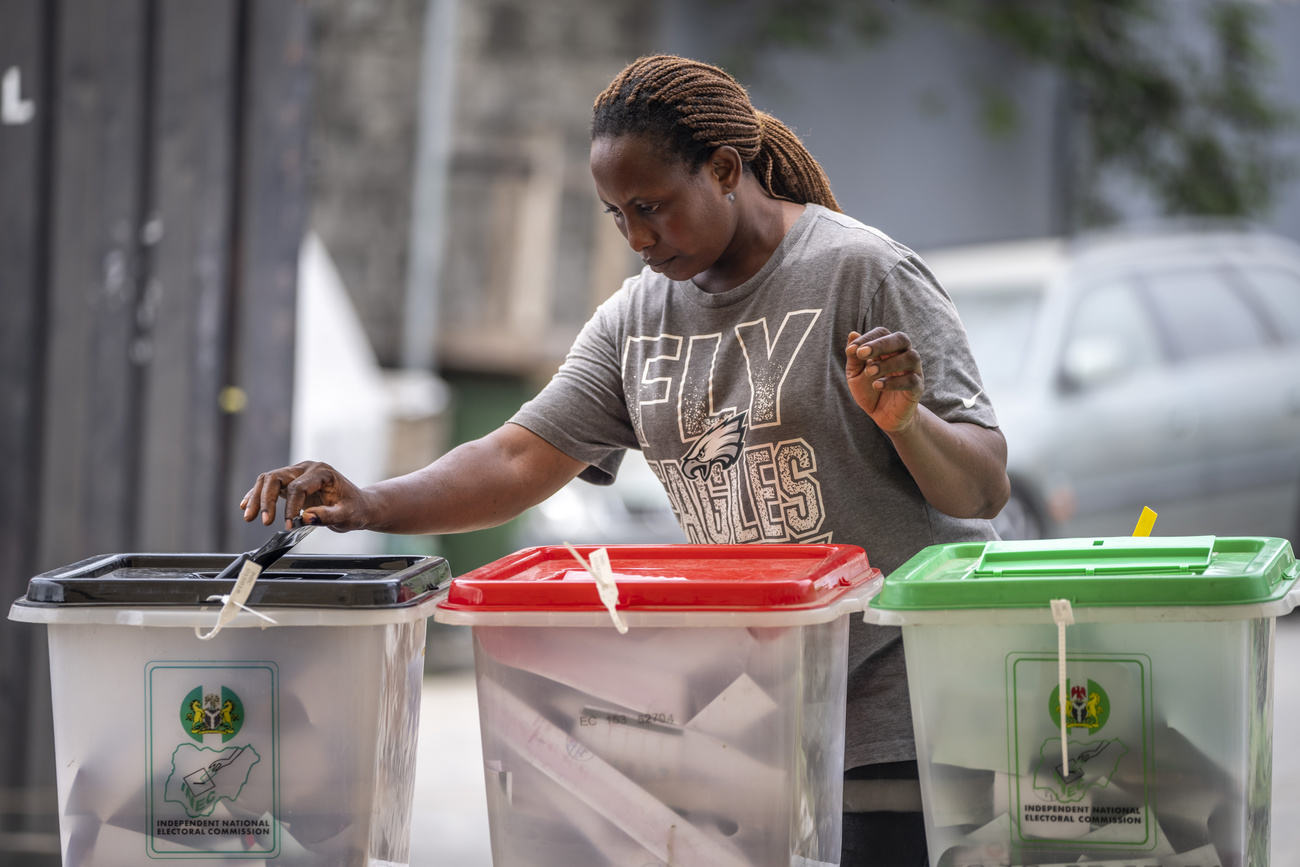
Nigeria: election observation and restitution of cultural property
In many ways, Nigeria is the complete opposite of Switzerland. The country is huge and above all, very young.
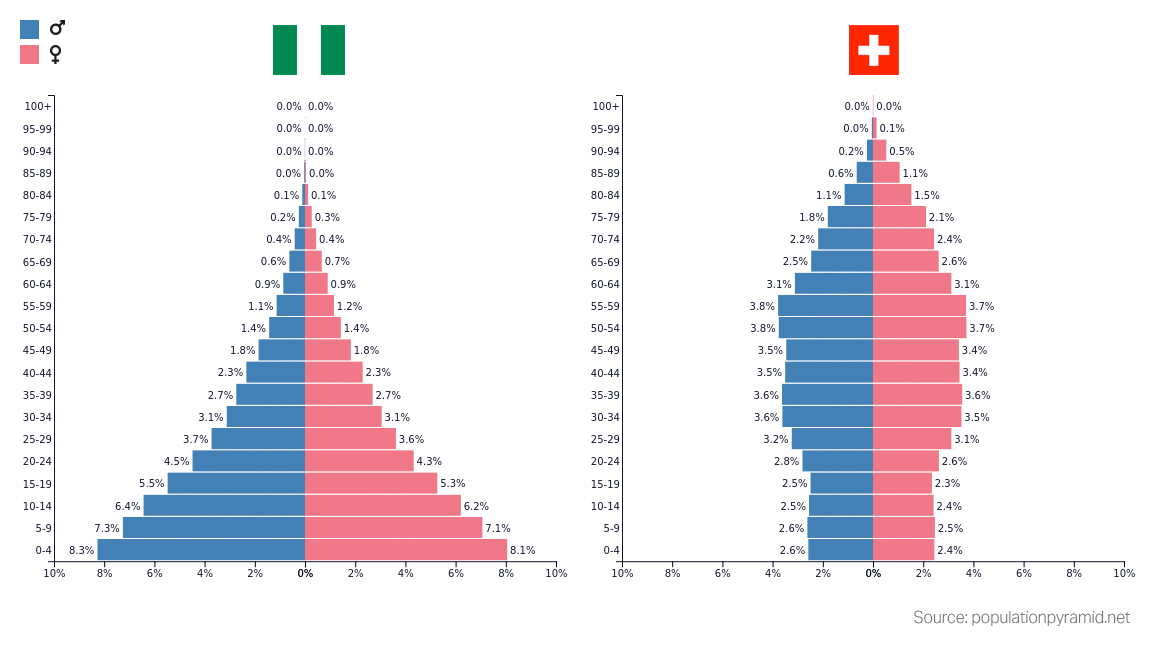
One woman from the Nigerian diaspora who lives in Switzerland shared her views with SWI swissinfo.ch on democracy in her home country.
Another Nigerian national, Abba Tijani, spoke about an important challenge facing Switzerland and other Western countries: deciding the fate of looted colonial art. According to a report by the Benin Initiative Switzerland, half of all Benin bronzes displayed in Swiss museums are of dubious origin. These are soon to be returned to their rightful owners in Nigeria.
Since the restitution of looted artefacts depends on dialogue and cooperation, many museums are playing for time. But the question arises whether simply returning these objects is enough to make up for past sins. According to Tijani, director-general of Nigeria’s National Commission for Museums and Monuments, restitution should not create a vacuum but instead help to build cooperation between Nigeria and Switzerland.
+ Two views from the outside in
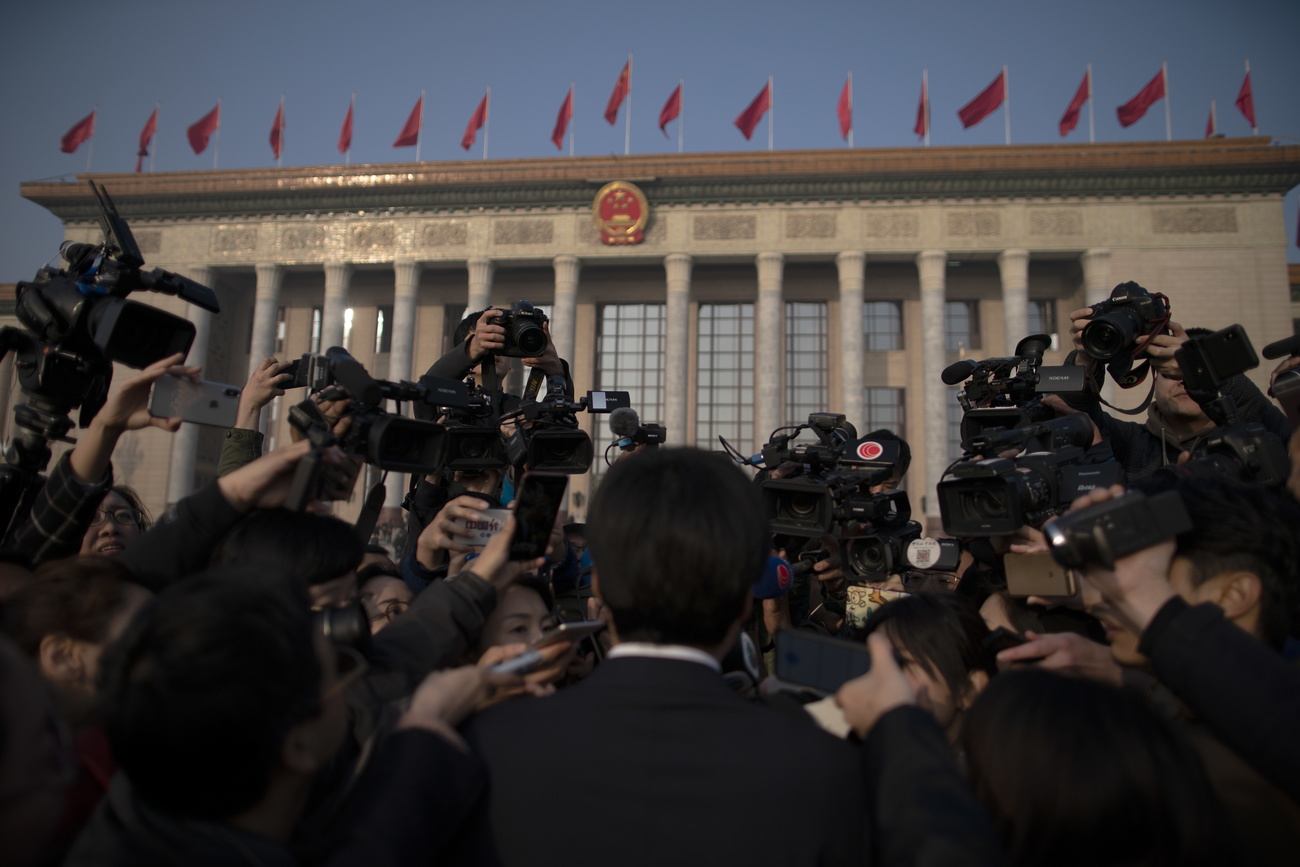
China: restricted press freedoms
Besides a majority of Anglo-Saxon media outlets, many Swiss news organisations still have foreign correspondents in China. “As a representative of the Swiss media, I still enjoy a relatively high reputation,” says correspondent Matthias Kamp of the Neue Zürcher Zeitung. This may have something to do with Switzerland’s neutrality. “Today, however, you really have to wonder whether it would not be better to work from a place other than Beijing. Everyone is nervous and anxious here. Nobody responds to my requests for interviews anymore,” says Kemp. Many correspondents now file their reports on China and East Asia from Taiwan.
At SWI swissinfo.ch, we do it the other way around. Four journalists of Chinese origin work for us in Bern and file reports about Switzerland for our Chinese-speaking readership abroad. As our website is difficult to access in China, our reporting is mainly aimed at Chinese-speaking people who live outside China.
Edited by Reto Gysi von Wartburg and translated from German by Billi Bierling
Do you want to know which Swiss issues the international community is interested in? The following curated offer and services could support you in your search:
-
SWIplus (SWI swissinfo.ch app)
-
Newsletters by SWI swissinfo.ch (on an array of topics)
-
Swiss ReviewExternal link (magazine for the Swiss Abroad)
More

In compliance with the JTI standards
More: SWI swissinfo.ch certified by the Journalism Trust Initiative


























